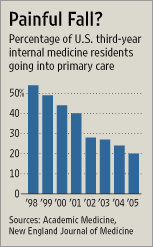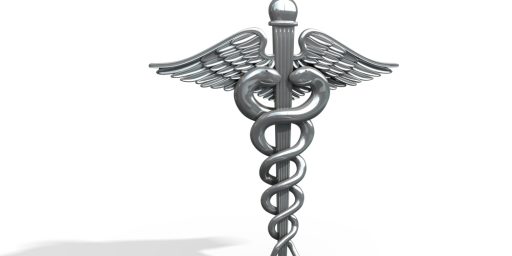My Utility Function Can Beat Up Yours
I just love it when people write on economic issues, especially when they don’t really know all that much about it. For example Kevin Drum and David Wessel. Kevin spotted the article by Wessel and concludes that markets in health care may not work to raise quality. Why? Well the Rand Corporation study that Wessel discusses in his article. Here is the part that Drum found fascinating,
Researchers from the Rand Corp. think tank, the University of California at Los Angeles and the federal Department of Veterans Affairs asked 236 elderly patients at two big managed-care plans, one in the Southwest and the other in the Northeast, to rate the medical care they were getting. The average score was high — about 8.9 on a scale from zero to 10.
….In the second part of their study, the medical researchers systematically examined 13 months of medical records to gauge the quality of care the same elderly patients had received….The average score wasn’t as impressive as those in the patient-satisfaction surveys: 5.5 on a 10-point scale. But here’s the interesting part: Those patients who graded the quality of their care as 10 weren’t any more likely to be getting high-quality care than those who gave it a grade of 5. The most-satisfied patients didn’t get better medical care than the least-satisfied.
The idea is this, medical care is complicated and people aren’t all that smart. Hence people can’t tell if they are getting good care or not. This is also, Wessel’s view despite the fact that the authors of the study pointed out a potential problem.
“Patient ratings of health care are easy to obtain and report,” says John T. Chang, a UCLA physician and lead author on an article summarizing the research in the journal Annals of Internal Medicine. That’s one big reason they are so popular among managed-care plans and hospitals.
Another reason, Dr. Chang says, is that “people who respond to surveys in general tend to be those who are satisfied; those who aren’t satisfied tend to leave the [health] plan.”
“But,” he adds, the surveys “do not accurately measure the technical quality of medical care.”
In other words, the patiant satisfaction survey has a selection bias problem. The pissed off consumer is likely to take the survey and rip it up and toss it. Hence, the results are upwardly biased. A survey of the technical quality of health care on the other hand is much less likely to have such a bias.
Further, lets look at Wessel’s opening remarks about the theoretical market for health care,
The theory: Give consumers more information, let them choose the best provider and the resulting competition will help to squeeze out costly waste and ineffective care. After all, markets work pretty well for other goods and services.
But this study does nothing to improve the information sets of the consumers. In fact, a managed care system, if anything, reduces the information sets for consumers. By offering a single price for all the doctors in the system there is no way for the consumer to know who is the better doctor. The idea here is simple, the price tells the consumer information about the product that is being purchased. Distort the price and you distort the information that you are sending to the consumer and the market in general. For example, suppose there is a really good doctor and through word of mouth over time the doctor becomes more and more popular. This doctor might raise his prices so that he isn’t swamped with patients, or his recpetionist doesn’t spend most of her time telling people that the doctor isn’t taking on anymore patients.
Further, the basic consumer theory that Wessel is talking about makes a key assumption that with regards to health care almost surely does not apply: homogenous goods. That is, a car is a car is a car. There is no distinction in standard economic theory between a luxury car and an economy car. Or more simply that quality is fixed. But quality is not fixed and the relationship between price and quality as well as containing health care costs depends on a number of factors that this study does not capture.
In short, this study does not mean what either Wessel or Drum thinks it means.






I don’t see how there’s any selection bias at all: they started with those people that had responded, and then evaluated the care they received in medical terms. If they had been evaluating the system based on those surveys, then there’d be a problem, but that wasn’t at all what they were after.
The patient who would give a low score for the doctor would likely not be in the survey because he didn’t do the patient sat. survey.
At best all that can be said is that people who respond to patient sat. surveys don’t know good medical care from average medical from bad medical care. And even that isn’t all that helpful in that it is really a test of how customers would respond when they have more information.
Isn’t it great that “science” has devolved to taking surveys?
And on another point, again I’ll ask, why does OTB take Mr. Drum seriously?
I just love it when people write on economic issues, especially when they don’t really know all that much about it.
You must have gotten a kick out of my old blog, then. 😉
In other words, the patiant satisfaction survey has a selection bias problem. The pissed off consumer is likely to take the survey and rip it up and toss it. Hence, the results are upwardly biased.
Well, that and the fact that badly-cared-for elderly patients may not be in any position to fill out customer satisfaction surveys.
I agree that the study does not say what Wessel or Drum think. In particular, they seem to be completely ignoring the most outstanding characteristic of a free market — the rapid propagation of information. Are patients in the current system well-informed? No? Well, duh, it’s not a market system.